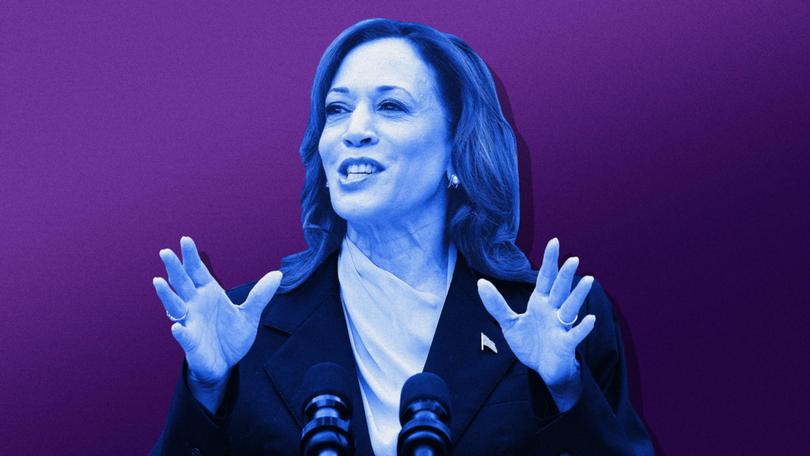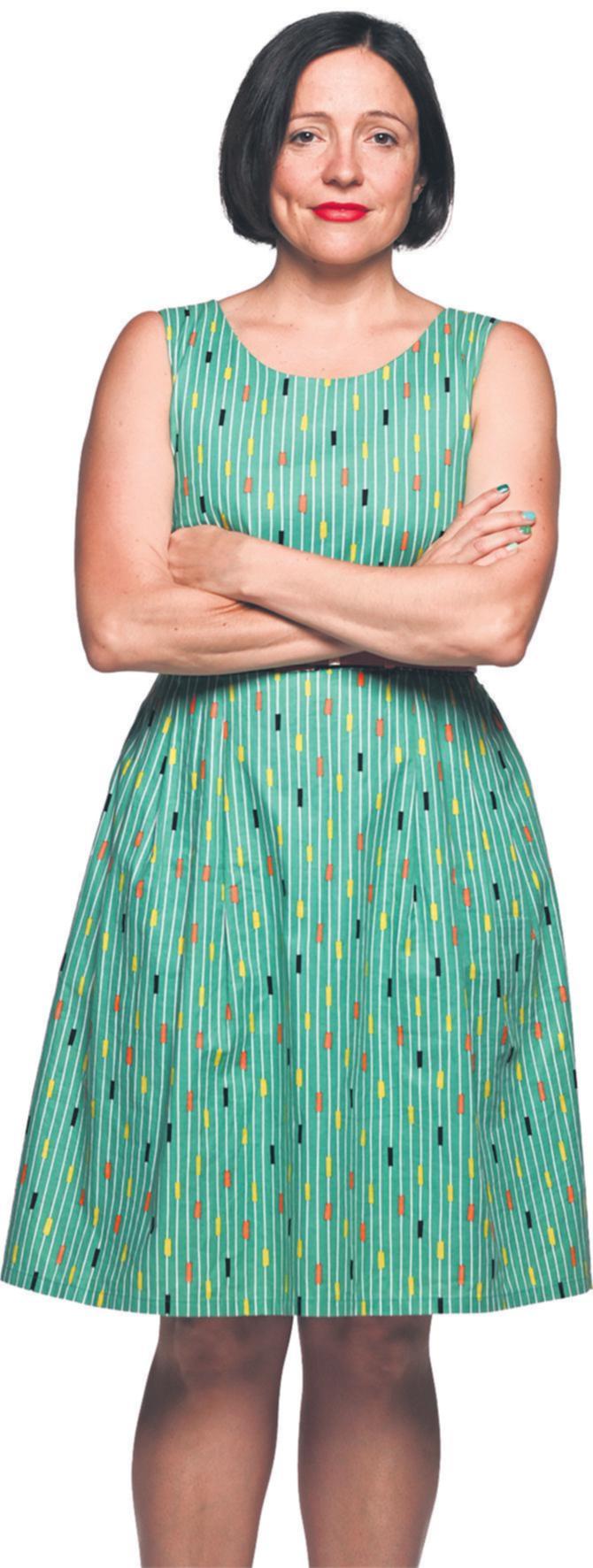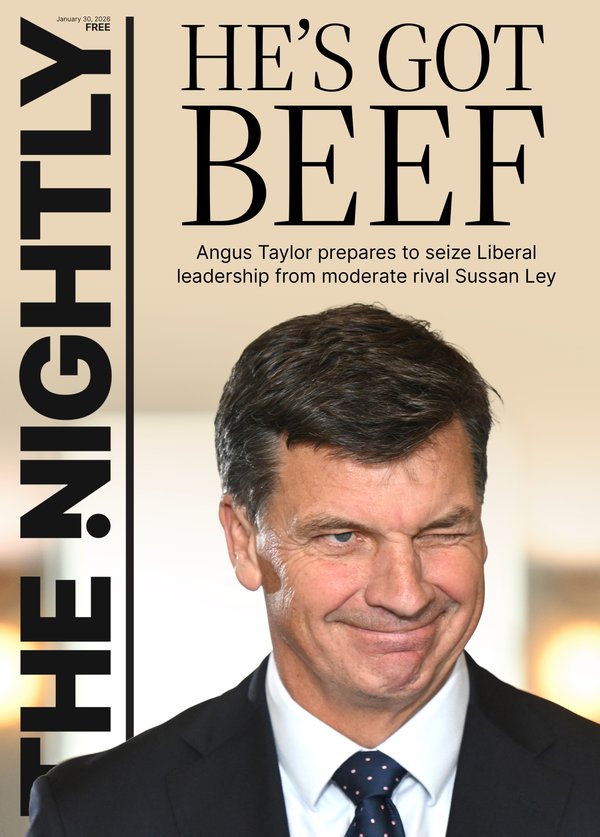KATE EMERY: You don’t need to be a parent to be president
KATE EMERY: The ink is still wet on Kamala Harris’ business cards, as she’s all but confirmed as the Democratic presidential nominee, but already her status as a ‘childless’ woman has been raised.

Do parents make better political leaders?
The ink is still wet on Kamala Harris’ new business cards, as she’s all but confirmed as the Democratic presidential nominee for November’s showdown with Donald Trump, but already her status as a “childless” woman has been raised.
Republican vice president nominee JD Vance was among those to dust off this tedious trope, suggesting Ms Harris is a “childless cat lady” who is miserable and “want(s) to make the rest of the country miserable too”.
Sign up to The Nightly's newsletters.
Get the first look at the digital newspaper, curated daily stories and breaking headlines delivered to your inbox.
By continuing you agree to our Terms and Privacy Policy.“Why is this just a normal fact of . . . life for the leaders of our country to be people who don’t have a personal and direct stake in it via their own offspring,” he wanted to know.
(Other things Mr Vance wanted to know, as recently as 2016, include whether Mr Trump was merely “a cynical asshole” or “America’s Hitler” but, hey, people change).
Never mind that Ms Harris has two step-children with her husband, that US founding father George Washington had no biological kids and still managed OK or that Mr Vance is such a retrograde throwback he thinks women should consider staying in violent marriages for the sake of the kids and that children who are raped should be forced to carry their rapist’s child to term.
This is not the first time a leader’s status as a parent (or not) has come up and it’s hard to believe it’ll be the last.
Australia’s first female prime minister Julia Gillard was famously criticised for being “deliberately barren” by then Liberal senator Bill Heffernan, who suggested a non-parent couldn’t be truly in touch with their community.

Former UK prime minister Theresa May’s childless status was raised by her own side, after leadership rival Andrea Leadsom claimed that “being a mum means you have a very real stake in the future of our country”.
Kamala. Julia. Theresa.
If only we could figure out what connects these three leaders and why they specifically might have had their child-free status questioned. Alas, it’s a mystery Hercule Poirot couldn’t crack.
To be fair, some male politicians have also been questioned about their life choices. Former British prime minister Gordon Brown was once asked — on radio — if he was single because he was gay or “whether there is some flaw in your personality” which is, I’m pretty sure, what every single person loves to be asked.
You might think it’s ridiculous to ask whether parents make better politicians and I’m inclined to agree with you. Still, it would be an easier question to ignore if politicians weren’t so fond of using their families when it’s convenient.
Not if the kid has done something questionable, then it’s a low blow to make a private family matter political.
But when a politician needs to be humanised there’s nothing like a photo spread with the spouse and kids in a weekend colour supplement to get the job done.
Kids also come in handy when a politician wants to use the fig leaf of “spending more time with my family” to obscure the real reason they’re quitting (sexual transgression, their party hates them or they’re trying to get ahead of a looming scandal).
For politicians, then, there’s value in having kids — if only for the photo op.
But for the general public? I don’t see it.
And if politicians having kids is supposed to put them in touch with the issues of future generations, well, the kids aren’t seeing that either. Because, while most politicians have children, most young people do not feel heard by those in power.
In Australia, an Australian National University report found 86 per cent of young people surveyed felt the Federal Government was “definitely” or “probably” not representative of their perspectives or values.
In the UK, the Children’s Charities Coalition found 62 per cent of children think politicians don’t understand the issues that affect them and 73 per cent don’t believe politicians listen to kids.
In the US, a Data for Progress poll found 80 per cent of 18 to 29-year-olds felt unrepresented by Congress.
These results, which get more or less replicated every time one of these surveys is done, suggest having kids might be a political advantage for politicians but not necessarily for the people they represent.
There have been plenty of successful leaders without their own biological kids: Mr Washington, the late Japanese prime minister Shinzo Abe, former German chancellor Angela Merkel and French President Emmanuel Macron among them.
There have been some bad leaders with kids, including a current Republican presidential nominee who has five children with three different women.
There is also, surely, a counterargument to be made that a politician with no children likely has more time to dedicate to a job that can be 24/7.
Certainly, those of us who do have kids like to tell ourselves that, if not for all the book week costumes to be made, the baths to be run and the homework to be supervised, we too could probably be leaders of the free world.
If we’re going to ask whether parents make better politicians we might as well ask if it’s necessary to be a brunette, or right-handed or born under an air sign to be a good leader.
All of these questions strike me as roughly as relevant as each other. Which is to say; not at all.
